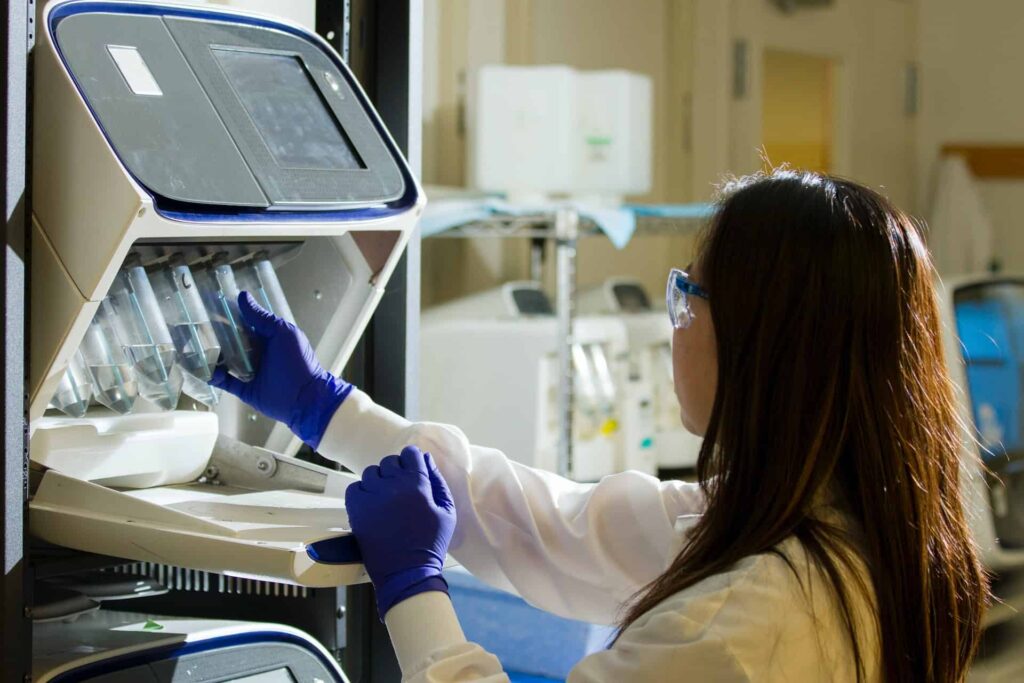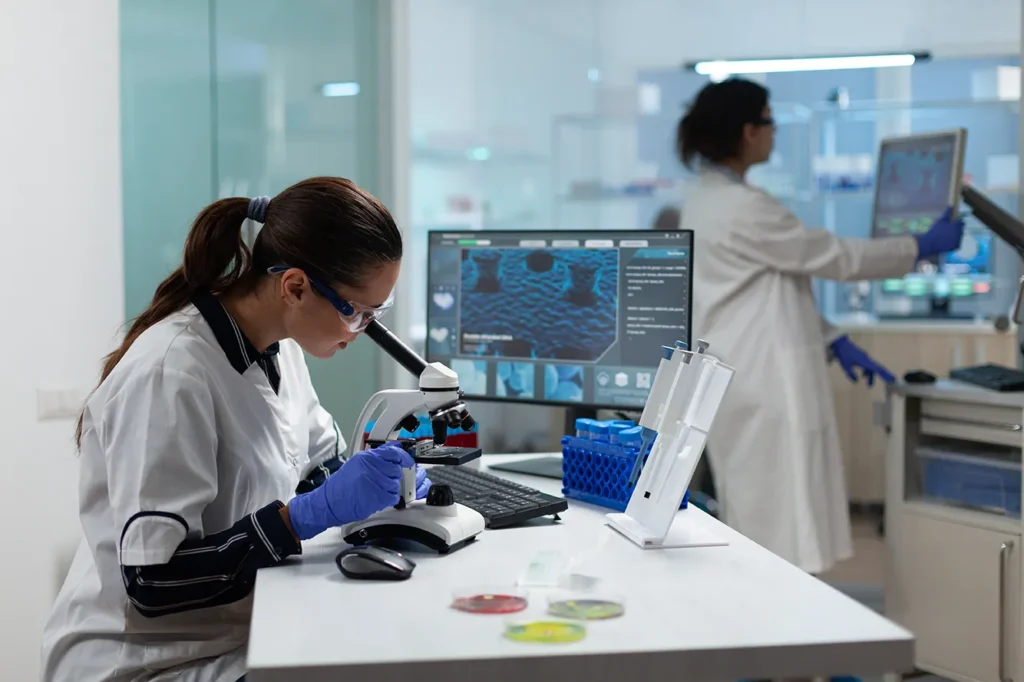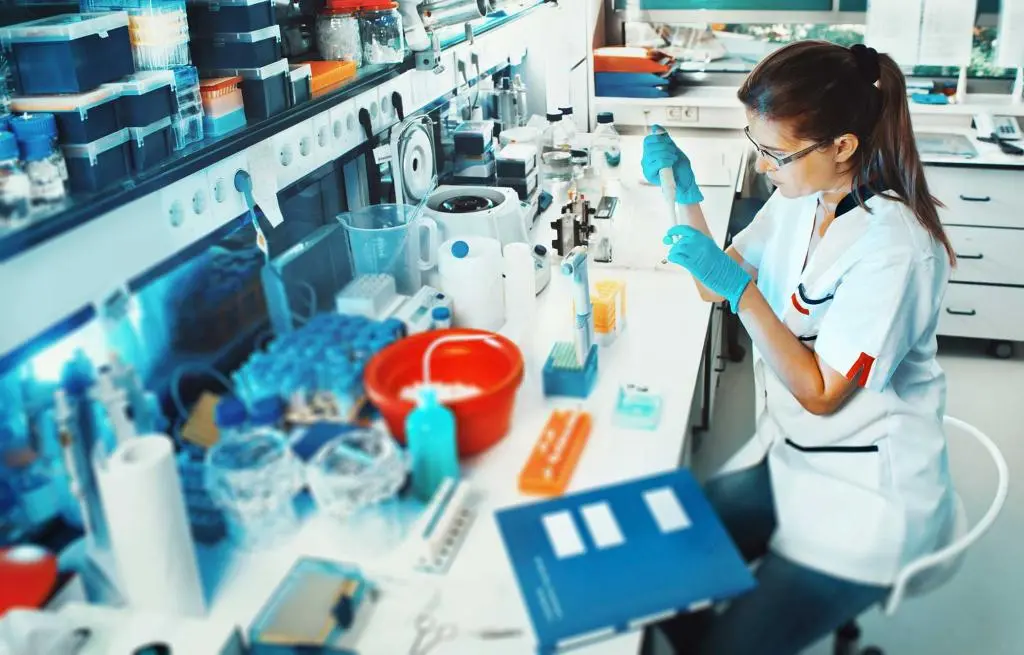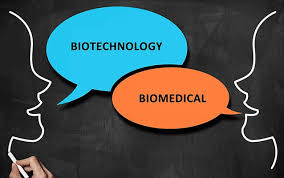In the realm of scientific advancement and innovation, the fields of biomedical and biotechnology stand out as dynamic arenas driving progress in healthcare, agriculture, and environmental sustainability. Both fields harness the power of biological processes and principles to address pressing challenges facing humanity.
However, the distinction between biomedical and biotechnology is often blurred, leading to confusion among enthusiasts and aspiring professionals. In this article, we delve into the nuances of each field to unravel their unique characteristics, applications, and potential impact on society.
How does Biomedical Science contribute to healthcare?

Biomedical science plays a crucial role in healthcare by advancing our understanding of diseases, developing new diagnostic tools and treatments, and improving overall patient care. Biomedical scientists study the biological mechanisms underlying diseases, including their causes, progression, and outcomes, forming the basis for effective prevention and treatment strategies.
They contribute to the development of diagnostic tests, ranging from simple blood tests to advanced imaging techniques like MRI and CT scans, enabling accurate disease identification and health assessment. Moreover, biomedical scientists are involved in discovering and developing new drugs, therapies, and medical devices through research and clinical trials, ensuring safer and more effective interventions. With the emergence of personalized medicine, they tailor treatments to individual characteristics, optimizing outcomes and minimizing adverse effects.
Additionally, they contribute to public health efforts by studying disease spread, identifying risk factors, and developing prevention strategies, including vaccination programs and health education campaigns. Genomic technologies have revolutionized biomedical science, allowing researchers to study genetics’ role in health and disease, informing personalized treatment approaches and cancer genetics.
Furthermore, biomedical scientists ensure regulatory compliance by conducting research to support safety and efficacy standards for healthcare products and practices, contributing to ongoing monitoring and surveillance efforts. In essence, biomedical science drives healthcare innovation, improving patient outcomes, enhancing quality of life, and reducing the burden of disease on individuals and society.
What are the applications of Biotechnology across industries?

Biotechnology, with its diverse applications, impacts various industries, fostering innovation, efficiency, and sustainability. Here’s a glimpse of its applications across different sectors:
Medicine and Healthcare
Biotechnology revolutionizes medicine and healthcare through the development of pharmaceuticals, vaccines, and diagnostic tools. It enables the production of biopharmaceuticals such as insulin, monoclonal antibodies, and vaccines through genetic engineering techniques.
Additionally, biotechnology plays a crucial role in personalized medicine by tailoring treatments based on individuals’ genetic makeup, improving efficacy and reducing adverse effects.
Agriculture and Food Production
In agriculture, biotechnology contributes to crop improvement, pest control, and sustainable farming practices. Genetically modified (GM) crops are engineered for increased yield, resistance to pests and diseases, and tolerance to environmental stresses like drought or salinity.
Biotechnology also enhances food production by improving food safety, quality, and nutritional content, as well as developing alternative protein sources like cultured meat and plant-based proteins.
Environmental Conservation and Remediation
Biotechnology offers solutions for environmental challenges, including pollution control, waste management, and renewable energy production. Bioremediation techniques use microorganisms to degrade pollutants in soil, water, and air, restoring ecosystems affected by contamination.
Moreover, biotechnology contributes to biofuel production from renewable resources such as biomass, algae, and agricultural waste, reducing reliance on fossil fuels and mitigating greenhouse gas emissions.
Industrial Manufacturing and Processes
Biotechnology enhances industrial processes by providing sustainable alternatives to traditional manufacturing methods. Enzymes, microorganisms, and bio-based materials are used in various industries, including textiles, chemicals, and cosmetics, to improve product quality, efficiency, and environmental performance.
Biocatalysis, fermentation, and bio-based synthesis enable the production of biofuels, biopolymers, and specialty chemicals with reduced energy consumption and waste generation.
Biomedical Research and Biomedical Engineering
Biotechnology drives biomedical research and biomedical engineering, enabling advancements in disease diagnosis, treatment, and regenerative medicine.
Techniques like gene editing (e.g., CRISPR-Cas9) allow precise modification of genetic material for studying disease mechanisms and developing gene therapies.
Biomedical engineering combines principles of biology and engineering to create medical devices, prosthetics, and tissue engineering scaffolds for repairing or replacing damaged tissues and organs.
Biotechnology contributes to forestry management and conservation efforts by developing genetically improved tree varieties for reforestation and afforestation projects. It also aids in conserving endangered species through techniques like cryopreservation of genetic material and assisted reproductive technologies.
Additionally, biotechnology supports biodiversity conservation by monitoring and studying ecosystems to better understand and preserve species diversity and ecological balance.
What are the strengths and limitations of Biomedical Science and Biotechnology?

Biomedical science and biotechnology offer tremendous potential to advance healthcare, agriculture, industry, and environmental conservation. However, they also have their strengths and limitations:
Strengths
Biomedical science and biotechnology have led to breakthroughs in disease understanding, diagnosis, and treatment. They have facilitated the development of new drugs, vaccines, and medical devices, improving patient outcomes and quality of life.
These fields enable personalized medicine approaches, tailoring treatments based on individuals’ genetic makeup, lifestyle, and other factors. This approach enhances treatment efficacy, minimizes adverse effects, and optimizes patient care.
Biomedical science and biotechnology contribute to disease prevention and control through the development of vaccines, diagnostic tests, and public health interventions. They play a crucial role in managing infectious diseases, reducing transmission rates, and improving global health outcomes.
In agriculture, biotechnology enhances crop productivity, pest resistance, and environmental sustainability. Genetically modified crops and biotech-based agricultural practices help address food security challenges, reduce pesticide use, and mitigate environmental impacts.
Biotechnology offers solutions for environmental conservation and remediation, including bioremediation of polluted sites, biofuel production from renewable resources, and waste management strategies. These technologies contribute to sustainability goals by reducing dependence on fossil fuels and mitigating environmental pollution.
Limitations
Biomedical science and biotechnology raise ethical and social concerns related to genetic engineering, human cloning, and the use of biotechnological interventions in reproduction. These issues spark debates about the moral implications, equity, and societal acceptance of biotechnological advancements.
The safety and regulation of biotechnological products and practices present challenges due to potential risks to human health, the environment, and biodiversity. Ensuring the safety and efficacy of genetically modified organisms (GMOs), gene therapies, and biopharmaceuticals requires robust regulatory frameworks and risk assessment processes.
Access to biotechnological innovations, especially in healthcare, can be limited by factors such as cost, infrastructure, and geographical disparities. Ensuring equitable access to life-saving treatments, diagnostics, and agricultural biotechnologies remains a challenge, particularly in low-resource settings.
Biomedical science and biotechnology involve complex technologies and specialized knowledge, requiring significant expertise, infrastructure, and investment. The rapid pace of technological advancements also poses challenges in keeping up with evolving methodologies and techniques.
Despite their potential for environmental sustainability, biotechnological applications raise concerns about unintended ecological consequences, such as the spread of genetically modified organisms, genetic pollution, and disruption of natural ecosystems. Assessing and managing these risks is essential for responsible biotechnological innovation.
FAQ’s
Are biomedical and biotechnology the same?
No, they’re not. Biomedical science studies how our bodies work and get sick, while biotechnology uses living things to create useful stuff.
Is biomedical science good for the future?
Yep! It helps us understand diseases better, make personalized treatments, and invent cool new medical stuff. So, it’s super important for making people healthier.
Is zoology better than biotechnology?
It depends on what you like! Zoology is about animals, while biotechnology is about using living things to make useful things. Both are great if you’re interested in science!
Is biotechnology a good career?
Absolutely! Biotechnology has lots of cool jobs in making medicines, improving farming, and protecting the environment. If you love science and helping people, it’s a great career choice!
Why biomedical science is the best?
Biomedical science rocks because it helps doctors understand diseases, create new treatments, and keep people healthy. It’s exciting, important, and helps make the world a better place!
Final Words
Both biomedical science and biotechnology play pivotal roles in advancing scientific knowledge and improving the quality of life for individuals around the globe. While biomedical science focuses on understanding the intricacies of human health and disease, biotechnology leverages biological processes to develop innovative products and solutions with far-reaching implications.
Rather than viewing them as competing entities, it is more accurate to recognize them as complementary fields that work synergistically to address complex challenges facing society.
By fostering collaboration and interdisciplinary research, we can harness the full potential of biomedical science and biotechnology to drive positive change and usher in a brighter future for humanity.
